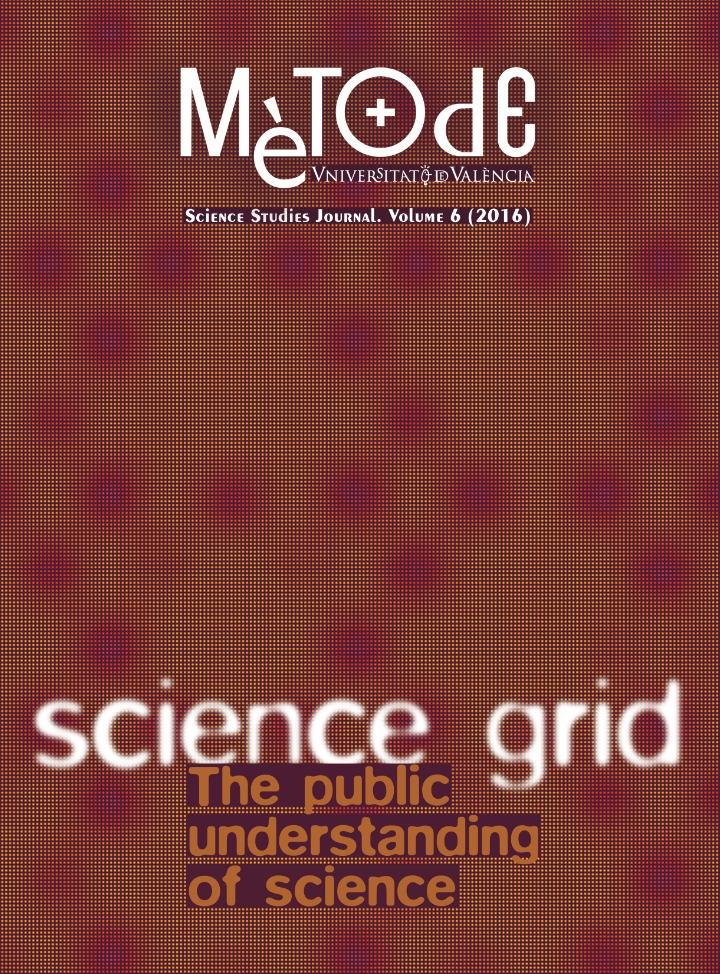Editorial
DOI:
https://doi.org/10.7203/metode.6.8183 Abstract
Abstract
In 2013, Mètode started a new era with the publication of the English language Annual Review, which would later be named Mètode Science Studies Journal in order to advance the academic aspect of the documents within. It created a space open to scientists and researchers in science communication for the promotion of scientific knowledge and the critical debate around it. A new project was born with the vocation to go beyond the advancement of the understanding of science in our society. Now, three years later, our journal is included in the Scopus database, one of the world’s most prestigious indexes for scientific publications, and we continue working to increase the number of international databases in which it is included. It is rewarding to see one’s effort recognised and this pushes us to continue working. The new volume of Mètode Science Studies Journal presented herein offers a panoramic view of several scientific questions from diverse disciplines such as evolutionary biology, science communication, linguistics, sociology, the history of science or literature. The issue includes four monographs on climate change in our society, the rhetoric of science communication, the origin of life and health communication, coordinated by experts on each field. Surely they provide an interesting and enriching perspective of science. A multidisciplinary and cross-cutting issue, just science itself, which is less and less compartmentalised every day, more focused on the collaboration and convergence of teams and disciplines. Therefore, the publication you can now read is but a collection of documents to portray the powerful and diverse grid that is science.
Martí Domínguez. Editor-in-Chief of Mètode SSJ. University of Valencia (Spain).
 Downloads
Downloads
Downloads
Published
How to Cite
-
Abstract331
-
PDF126
Issue
Section
License
![]()
All the documents in the OJS platform are open access and property of their respective authors.
Authors publishing in the journal agree to the following terms:
- Authors keep the rights and guarantee Metode Science Studies Journal the right to be the first publication of the document, licensed under a Creative Commons Attribution-NonCommercial-NoDerivatives 4.0 International License that allows others to share the work with an acknowledgement of authorship and publication in the journal.
- Authors are allowed and encouraged to spread their work through electronic means using personal or institutional websites (institutional open archives, personal websites or professional and academic networks profiles) once the text has been published.





